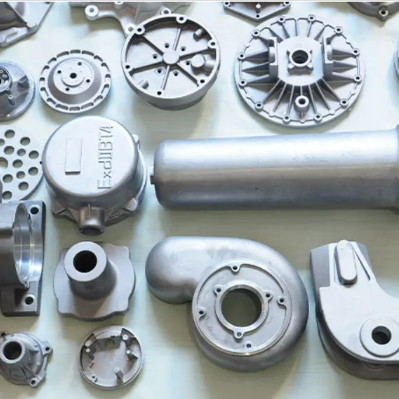Mobile:+86-311-808-126-83
Email:info@ydcastings.com
Casting Techniques for Efficient Ball Valve Manufacturing and Performance Optimization
Understanding Casting Ball Valves A Comprehensive Overview
Casting ball valves are pivotal components in various industrial applications, serving as critical mechanisms for regulating the flow of liquids and gases in pipelines. These valves are designed for both efficiency and long-term reliability, making them essential in fields such as oil and gas, water supply, and chemical processing.
What is a Casting Ball Valve?
A casting ball valve is a quarter-turn valve that utilizes a spherical disc (the ball) to control flow. The ball has a hole (port) through its center, and when the valve is in the open position, the port aligns with the flow path, allowing fluid to pass through. When the valve is closed, the ball rotates 90 degrees, blocking the flow path. This simple yet effective mechanism allows for quick operation and tight sealing, making ball valves a popular choice for on/off applications.
Manufacturing Process
The manufacturing of casting ball valves typically involves a casting process that imparts specific mechanical properties to the valve body. The most common materials used in this process include cast iron, stainless steel, and brass, each chosen based on the application’s requirements.
During production, molten metal is poured into a mold to form the valve body. After cooling, the casting is removed, and the valve components such as the ball, seat, and stem are machined to ensure precise fit and function. This manufacturing technique provides cost-effective solutions while ensuring durable products that can withstand high pressures and temperatures.
Applications of Casting Ball Valves
Casting ball valves are incredibly versatile and find applications across numerous industries. In the oil and gas sector, they are used to control the flow of crude oil and natural gas, providing reliable operation in challenging environments. In water supply systems, these valves regulate water flow in municipal piping and irrigation projects, ensuring efficient supply management.
casting ball valve

In chemical processing, casting ball valves are crucial for handling corrosive substances
. Their robust construction and ability to form a tight seal minimize the risk of leaks, thereby enhancing safety in hazardous environments. Additionally, they are extensively used in HVAC systems for regulating heating and cooling fluids.Advantages of Casting Ball Valves
One of the primary advantages of casting ball valves is their ease of operation. The quarter-turn mechanism allows for rapid opening and closing, minimizing downtime and making them suitable for emergency shut-off scenarios. Moreover, they offer excellent sealing capabilities, reducing the chances of leaks and loss of pressure.
Casting ball valves also exhibit strong resistance to wear and corrosion, thanks to their durable materials and design. This longevity translates into lower maintenance costs and a longer lifespan, making them a wise investment for industries requiring reliable fluid control solutions.
Considerations and Challenges
While casting ball valves have numerous benefits, several considerations must be taken into account when selecting and using them. It’s essential to consider the valve’s pressure and temperature ratings, which must align with the specific operational conditions. Additionally, compatibility with the media being handled is critical, particularly in applications involving corrosive substances.
Regular maintenance is also vital to ensure optimal performance. Although they are designed to be durable, factors such as wear on seals and accumulation of debris can impact their functionality over time.
Conclusion
Casting ball valves are integral to the efficient operation of various industrial systems. Their unique design offers numerous advantages, from quick operation to durable construction, making them ideal for a wide range of applications. As industries continue to evolve, the demand for reliable fluid control mechanisms like casting ball valves remains high, underscoring their significance in modern infrastructure. Whether in oil refineries, water treatment plants, or chemical processing facilities, the reliability and efficiency of casting ball valves will continue to play a crucial role in ensuring safety and productivity.
-
Why Should You Invest in Superior Pump Castings for Your Equipment?NewsJun.09,2025
-
Unlock Performance Potential with Stainless Impellers and Aluminum End CapsNewsJun.09,2025
-
Revolutionize Your Machinery with Superior Cast Iron and Aluminum ComponentsNewsJun.09,2025
-
Revolutionize Fluid Dynamics with Premium Pump ComponentsNewsJun.09,2025
-
Optimizing Industrial Systems with Essential Valve ComponentsNewsJun.09,2025
-
Elevate Grid Efficiency with High-Precision Power CastingsNewsJun.09,2025











